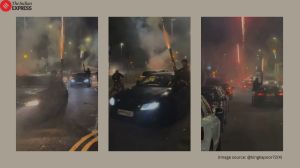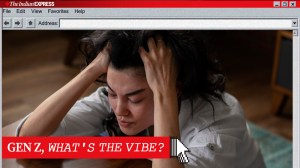Selling for a song
Modern states don’t instruct citizens to demonstrate patriotism. Arjun Singh is finding this out

Could HRD Minister Arjun Singh have been so swayed by his own project to articulate state-authorised history texts that he actually thought he could escape the experience of his Congress party on holding any consensus on Vande Mataram? By the ‘30s, three decades after the party had adopted Vande Mataram as the national song, its greatest minds — including Mahatma Gandhi, Pandit Nehru and Netaji Bose — were caught in a long-drawn-out bid to edit the verse to accommodate the misgivings of the minorities. Finally, just the first two stanzas were chiselled out for recitation. Even so, Vande Mataram has continued to be controversial — most recently in the late ‘90s when a BJP plan to have it sung in UP schools drew strong political opposition. Now, to his obvious consternation, Singh finds himself on the other side of the debate from a constituency he has been accused of cultivating for political considerations. There’s irony in Singh’s predicament, and there’s some justice, too: politicians, whether ‘pro-minority’ or ‘pro-majority’, should know aggressive identity politics can have the most unexpected consequences. Singh is trying all kinds of semantics to get out of this knot — yes, there would be “simultaneous countrywide compulsory singing” but it would not be mandatory.
But there’s a larger question: state-managed anniversary celebrations are too Stalinist to find comfortable space in a modern, plural democracy. In fact the entire celebration — reportedly at the behest of the Ambika Soni-headed ministry of culture — is unfounded. Government is expected to heed milestones of cultural and historical import. But orchestrating them into compulsory shows of patriotism is to incite chauvinism or alienation, or both.
The Vande Mataram controversy also highlights, once again, the government’s reluctance to let ownership of national symbols pass to the people. Freedom to fly the national flag is still fraught with too many dos and don’ts. And the hugely successful pop renditions of VM show that Indians can find a comfort level with the songs and texts of their literary heritage. It is the intrusion of political interests that imbue them with sectarian colour. Most of the songs and anthems of modern democracies, like those of the US and Britain, once carried religious or hegemonic notions. Those contexts are now past. The point is to reclaim the verses in a modern spirit.





- 01
- 02
- 03
- 04
- 05


























